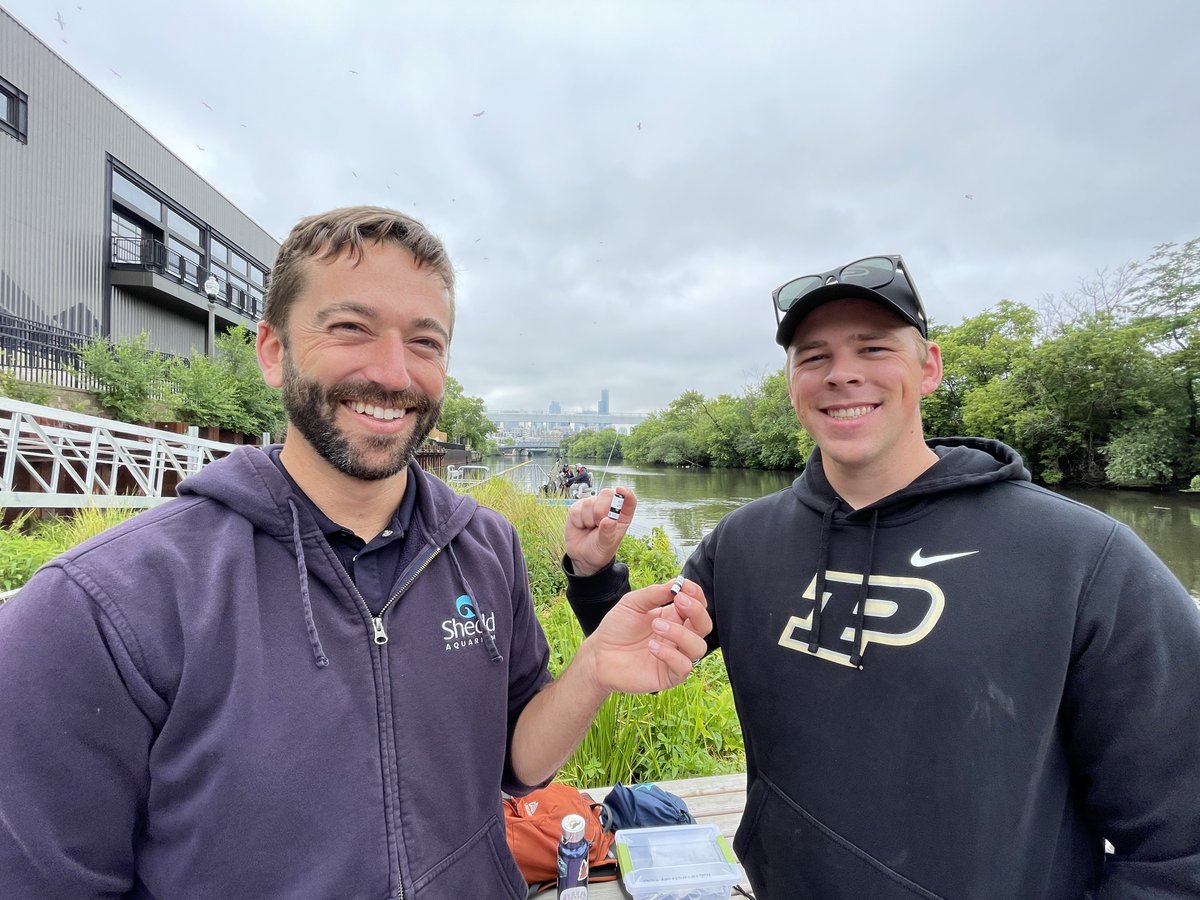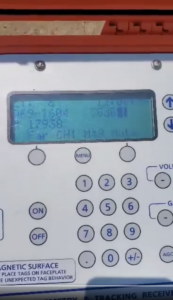Tracking Fish in Downtown Chicago
Illinois-Indiana Sea Grant, Shedd Aquarium, and Purdue University Forestry and Natural Resources are studying fish behavior in the Chicago River. Using acoustic tags, researchers seek to better understand how fish move about the river and respond to various restoration initiatives.

Austin Happel (left) and Luke McGill (right) show what fish tags look like. These acoustic transmitters are surgically implanted — with no harm done to the fish — and emit sound waves that can be picked up by receivers placed throughout the Chicago River. (Photo provided by Shedd Aquarium)

Acoustic tags emit sound waves encoded with a sequence, which allows researchers to find specific individuals using receivers. This VR100 helps us find fish in the Chicago River. #17938 is a Largemouth Bass we tagged in the South Branch of the Chicago River.
In June 2023, researchers began their Chicago River Acoustic Telemetry Array project by equipping 80 fish with acoustic tags, including largemouth bass, common carp, and bluegill. These tags send out a unique ID code into the water. Receivers in the water “listen” for nearby tagged fish and store the ID of the tag as well as the date and time. Scientists can use these data to better understand the behavior of fish in the Chicago River.
Like many of the world’s urban rivers, the Chicago River has been channelized, straightened, deepened, and tied to the city’s sewer system. What makes it unique is that over 70% of its flow is from the discharge of effluent from wastewater treatment plants, which allow it to flow over a continental divide, often giving it the name “the backward river.” A deeper understanding of fishes in these impacted waterways and how they respond to changes in the system not only yields insights into functional habitat restoration in Chicago, but across other urban systems as well.
Fish tracking through acoustic telemetry can help researchers understand how fish are using certain restoration initiatives — such as artificial floating islands — as well as identify critical spawning habitat, key overwinter areas, movement patterns, and home-ranges.
This research is funded by the Natural Resources Conservation Service.
Contact Info
Topic Specialist
Research Projects
Publications
Education & Training
Related News
- Funding opportunity for 2025 Lake Michigan science and monitoring research
- The Helm magazine highlights water safety, community planning and more
- New funding boosts forward-thinking research and outreach projects
- IISG finds new approaches to help communities and others make informed decisions
- Meet our Grad Student Scholars: Sydney McAndrews
